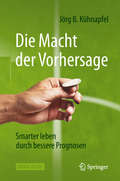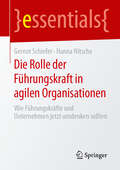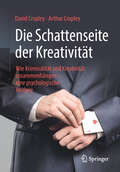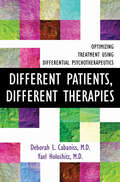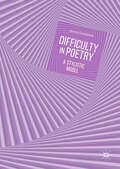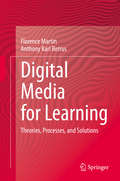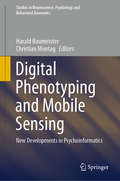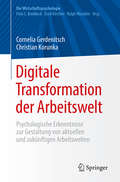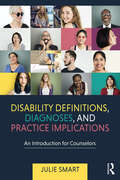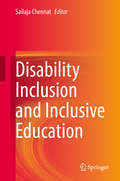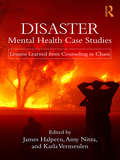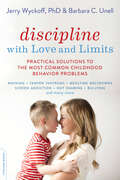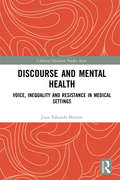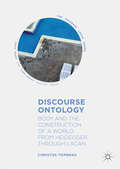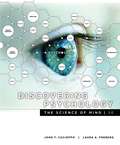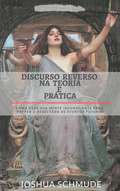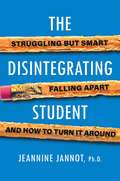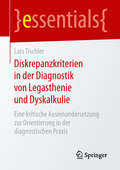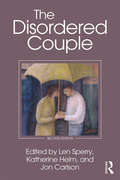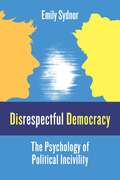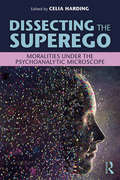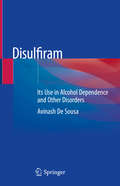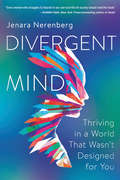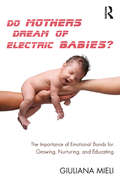- Table View
- List View
Die Macht der Vorhersage: Smarter leben durch bessere Prognosen
by Jörg B. KühnapfelJede Entscheidung erfordert eine Prognose! Mal erfolgt sie bewusst, mal unbewusst, mal selbstbestimmt und oft genug wird sie uns aufgedrängt. Gute Prognosen sind hilfreich, doch schlechte Prognosen führen zu schlechten Entscheidungen: Sie schätzen Risiken falsch ein, verzetteln sich auf Umwegen und lassen Chancen aus. Dieses Buch zeigt Ihnen, wie Sie bestmögliche Prognosen für Ihre Entscheidungen erstellen. Es zeigt Ihnen auch, wie Sie falsche Propheten erkennen. Für Alltagssituationen und für die wichtigen Weichenstellungen im Leben werden alltagstaugliche Prognosetechniken erklärt. Mit ihnen gelingt es, kluge Entscheidungen zu treffen und smarter zu leben.Dieses Sachbuch zeigt Ihnen, in wie weit Ihr Leben durch Prognosen - gute und schlechte, eigene und fremde - bestimmt wird. Dabei sind unzählige Alltagsentscheidungen reine Routine, andere wirken richtungsweisend und bestimmen Ihren weiteren Weg. Für diese Entscheidungen benötigen Sie eine Vorstellung davon, wohin sie führen – eine Prognose. Die Prognose hilft Ihnen, besser und klüger zu entscheiden. Wie solche Prognosen im Alltag funktionieren, was Sie für eine zutreffende Prognose benötigen und vor welchen eigenen oder fremden Fallstricken Sie sich dabei in Acht nehmen sollten (zum Beispiel beim Thema Finanzen), verrät Ihnen dieses Buch. Die zahlreichen Beispiele stützen sich aus guten Gründen ausschließlich auf empirisch verlässliches Material und Forschungsergebnisse.
Die Rolle der Führungskraft in agilen Organisationen: Wie Führungskräfte und Unternehmen jetzt umdenken sollten (essentials)
by Gernot Schiefer Hanna NitscheIn diesem essential werden Chancen und Hindernisse bei der Umsetzung agiler Personalführung fokussiert und Ansätze dargestellt, Führungskräfte bei dieser zentralen Aufgabe zu unterstützen. Die Autoren skizzieren die Herausforderungen einer Führungskraft, die ihren Mitarbeitern agile Denk- und Arbeitsweisen vorleben soll. Sie arbeiten heraus, wie die Unternehmensspitze und das Personalmanagement dazu beitragen können, dass Führungskräfte dieser Rolle gerecht werden. Nicht zuletzt wird auf die Abhängigkeit der Führungskultur von der Unternehmenskultur aus Sicht der Führungskräfte eingegangen.
Die Schattenseite der Kreativität: Wie Kriminalität und Kreativität zusammenhängen – eine psychologische Analyse
by Arthur Cropley David CropleyKreativität wird in der Regel als positives Merkmal beschrieben, das Wachstum und Erneuerung bringt. Sie wird allerdings nicht nur im positiven Sinne eingesetzt: Viele Straftaten weisen ein hohes Maß an effektiver Neuheit auf, d.h. sie sind kreativ. Dieses Buch präsentiert die wichtigsten psychologischen Konzepte, die notwendig sind, um solche einfallsreiche und erfinderische Verbrechen zu analysieren: die 4Ps der Kreativität (Person, Produkt, Prozess und Leistungsdruck [engl.: Press]) und die Phasen der Kreativität. Diese Konzepte werden dann mittels zweier Fallbeispiele (Gaunerei, Terrorismus) konkretisiert und Vorschläge für ihren Einsatz gemacht, um kreative Kriminalität zu bekämpfen.
Different Patients, Different Therapies: Optimizing Treatment Using Differential Psychotherapuetics
by Deborah L. Cabaniss Yael HoloshitzOptimizing treatment choice through understanding more than twenty popular types of therapy. Different Patients, Different Therapies is a guide to choosing among the many psychotherapeutic options available to patients and therapists today. Offering a systematic approach, Deborah L. Cabaniss and Yael Holoshitz outline more than twenty different types of therapy, including psychodynamic psychotherapy, CBT, DBT, MI, and ACT. At the heart of the book are vignettes of typical clinical situations, accompanied by commentary about treatment choice from more than thirty psychotherapy experts. Written in accessible, jargon- free language, this book is as suitable for an introductory class on psychotherapy for any mental- health training program as it is for a seasoned therapist or someone considering psychotherapeutic treatment. Chapters include exercises to help readers think through new ways of helping patients to optimize treatment decisions.
Difficulty in Poetry: A Stylistic Model
by Davide CastiglioneThis book theoretically defines and linguistically analyses the popular notion that poetry is ‘difficult’ - hard to read, hard to understand, hard to engage with. It is the first work to offer a stylistic and cognitive model that sheds new light on the mechanisms of difficulty, as well as on its range of potential effects. Its eight chapters are organised into two thematic parts. The first traces the history of difficulty, surveys its main scholarly traditions, addresses related themes – from elitism to obscurity, from abstraction to intentionality – and introduces a wide array of analytical tools from literary theory and cognitive psychology. These tools are then consistently applied in the second part, which includes several extended analyses of poems by canonical modernists such as Ezra Pound, Wallace Stevens and Hart Crane, alongside those of postmodernist innovators such as Geoffrey Hill, Susan Howe and Charles Bernstein, among others. This innovative work will provide fresh insights and approaches for scholars of stylistics, literary studies, cognitive poetics and psychology.
Digital Media for Learning: Theories, Processes, and Solutions
by Florence Martin Anthony Karl BetrusThis book provides a comprehensive overview on the theories, processes, and solutions relevant to effectively creating, using, and managing digital media in a variety of instructional settings. In the first section of the book, the authors provide an overview of the theories, development models, and principles of learning with digital media. In the second section, the authors detail various digital media solutions, including: Instructional Videos, Instructional Simulations and Games, Online Learning, Mobile Learning, and Emerging Learning Technologies. Overall, this book emphasizes the theoretical principles for learning with digital media and processes to design digital media solutions in various instructional settings. The readers are also provided with multiple case studies from real world projects in various instructional settings.
Digital Phenotyping and Mobile Sensing: New Developments in Psychoinformatics (Studies in Neuroscience, Psychology and Behavioral Economics)
by Harald Baumeister Christian MontagThis book offers a snapshot of cutting-edge applications of mobile sensing for digital phenotyping in the field of Psychoinformatics. The respective chapters, written by authoritative researchers, cover various aspects related to the use of these technologies in health, education, and cognitive science research. They share insights both into established applications of mobile sensing (such as predicting personality or mental and behavioral health on the basis of smartphone usage patterns) and emerging trends. Machine learning and deep learning approaches are discussed, and important considerations regarding privacy risks and ethical issues are assessed. In addition to essential background information on various technologies and theoretical methods, the book also presents relevant case studies and good scientific practices, thus addressing researchers and professionals alike. To cite Thomas R. Insel, who wrote the foreword to this book: “Patients will only use digital phenotyping if it solves a problem, perhaps a digital smoke alarm that can prevent a crisis. Providers will only use digital phenotyping if it fits seamlessly into their crowded workflow. If we can earn public trust, there is every reason to be excited about this new field. Suddenly, studying human behavior at scale, over months and years, is feasible.”
Digitale Transformation der Arbeitswelt: Psychologische Erkenntnisse Zur Gestaltung Von Aktuellen Und Zukünftigen Arbeitswelten (Die Wirtschaftspsychologie)
by Cornelia Gerdenitsch Christian KorunkaDieses Werk bietet einen wertvollen Überblick über die durch Digitalisierung ausgelösten Veränderungen in der Arbeitswelt. Basierend auf psychologischen Theorien und empirischen Ergebnissen vermittelt es Ihnen ein tieferes Verständnis über die Folgen einer digitalen Transformation hinsichtlich Erleben und Verhalten für Berufstätige. Zahlreiche Beispiele dienen zur praxisnahen Veranschaulichung der Sachverhalte und Fragen zur Thematik regen zum Weiterdenken an.
Disability Definitions, Diagnoses, and Practice Implications: An Introduction for Counselors
by Julie Smart<p>This introductory text defines and describes disability, while providing concrete practice guidelines and recommendations for students in the fields of counseling, social work, and the helping professions. Various specialty areas are explored in detail, including marriage and family counseling, adolescent counseling, addictions counseling, LGBTQ concerns, multicultural counseling, and career counseling. <p>The first three chapters lay the foundations by discussing the demand for counseling services by individuals with all types of disabilities; presenting clinical, legal, medical/biological, and personal definitions of disability; and describing physical, cognitive, and psychiatric disabilities. Next, author Julie Smart examines core beliefs about disability using a range of first-person accounts from experienced counselors. The last six chapters focus on practice guidelines for various aspects of disability—including ethical considerations, societal issues, social role demands, and individual responses—and consider new possibilities for disability counseling professions. <p>With rich case studies woven throughout, as well as valuable information on client needs, disability categorizations, and key Models of Disability, this essential textbook will be useful not only to counseling students but also to professional counselors, social workers, and psychologists.</p>
Disability Inclusion and Inclusive Education
by Sailaja ChennatThe book approaches the topic of disability, inclusion and inclusive education in a holistic way including both academic and psycho-social perspectives. It also focuses on the contemporary status of disability studies with a multidisciplinary dimension. The experiences and challenges of children with disabilities and the different dimensions of inclusive education have been situated appropriately by including at the outset, a chapter on 'Disability Studies: The Context'. Chapter on 'Sociology of Disability' accentuates the tone and perspective of the presentations of the authors and editor. The research findings presented in the book indicate grounded realities and suggestions for transactional strategies which are plausible in the Indian context. It has never been timely to publish a book that helps professionals who work with schools, special education teachers, and counsellors to analyze disabilities from a socio-psychological perspective keeping the protagonist at the centre. Case narrations situated in the Indian context enrich the presentations giving voice to the marginalized children/adults with disabilities. This work serves as a comprehensive reference for the most prevalent disabilities at school education level covering the conceptual understanding about each disability, their psycho-social perspectives, implications for classroom transactions, suggestions of transactional strategies along with a brief explanation of assistive technology that can be used in case of each disability.With Right to Education Act (2009) in place, a diverse range of readers, from special educators and other teachers in schools, prospective teachers pursuing their pre service teacher education programmes, teacher educators and researchers in the field of disabilities and inclusive education will all find this volume useful, as a reference material with long shelf life.
Disaster Mental Health Case Studies: Lessons Learned from Counseling in Chaos
by James Halpern Amy Nitza Karla VermeulenDisaster Mental Health Case Studies is a riveting collection of case studies by master clinicians that reveal how disaster mental health interventions must be tailored to meet the needs of survivors. Each unique case study is structured to give the reader an introduction to the community affected pre-disaster; a glimpse into the thought processes of the disaster mental health responders pre- and post-disaster; and a reflective selection of lessons learned as a result of the experiences. The 17 case studies offer the reader: Guidance on how to develop an empathic approach to disaster mental health response; Exposure to a diverse sample of disaster contexts, including naturally-occurring disasters, human-caused disasters, and disasters which occurred in an international setting; An understanding of the strategic approaches needed for disaster mental health service response, as well as an appreciation of the need for self-care when responding; A grounded and accessible writing style, bookended by chapters from the editors which thematically link and analyze the case studies. Offering a rare and compelling view into the challenges, tragedies, pain, frustrations, and grief at the heart of disaster mental health work, this must-have collection is tailored to appeal to students of mental health and counseling, psychology, and social work; and working mental health professionals who would like to learn directly from experienced responders.
Discipline with Love and Limits: Practical Solutions to Over 100 Common Childhood Behavior Problems
by Barbara C. Unell Jerry Wyckoff"The tools in this beloved book change everyday struggles into teachable moments." -- Wendy Webb, Mother, Grandmother, and National Trainer, Parents as TeachersFilled with parent-tested advice for over 100 asked-for behaviors, including:Screen Addiction - Bullying - Temper Tantrums - Won't Listen - Whining - Not Eating - Jealousy - Biting - Lying - Talking Back - Testing Limits - Won't Go to Bed - Clinging - Interrupting - Won't Do Homework - Sibling Rivalry...and more!With over 1 million copies sold, this updated and completely revised bestseller is the only pediatrician-recommended guide for what to do and what not to do in encouraging, respectful ways when responding to everyday behavior challenges of toddlers to teens. Practical solutions on each page teach empathy and inclusiveness, reduce stress and anxiety, build positive relationships, and empower children to thrive emotionally and physically.
Discourse and Mental Health: Voice, Inequality and Resistance in Medical Settings (Cultural Discourse Studies Series)
by Juan Eduardo BonninThis book is the result of years of fieldwork at a public hospital located in an immigrant neighborhood in Buenos Aires, Argentina. It focuses on the relationships between diversity and inequality in access to mental healthcare through the discourse practices, tactics and strategies deployed by patients with widely varying cultural, linguistic and social backgrounds. As an action-research process, it helped change communicative practices at the Hospital’s outpatient mental healthcare service. The book focuses on the entire process and its outcomes, arguing in favor of a critical, situated perspective on discourse analysis, theoretically and practically oriented to social change. It also proposes a different approach to doctor-patient communication, usually conducted from an ethnocentric perspective which does not take into account cultural, social and economic diversity. It reviews many topics that are somehow classical in doctor-patient communication analysis, but from a different point of view: issues such as the sequential organization of primary care encounters, diagnostic formulations, asymmetry and accommodation, etc., are now examined from a locally grounded ethnographic perspective. This change is not only theoretical but also political, as it helps understand patient practices of resistance, identity-making and solidarity in contexts of inequality.
Discourse Ontology: Body and the Construction of a World, from Heidegger through Lacan (The Palgrave Lacan Series)
by Christos TombrasThis book explores the themes within, and limits of, a dialogue between Martin Heidegger’s philosophy of being and Jacques Lacan’s post-Freudian metapsychology. It argues that a conceptual bridging between the two is possible, and lays the foundations of that bridge, starting with Heidegger and proceeding through the work of Lacan. After presenting basic aspects of Heidegger’s ontology, Tombras focuses on his incisive critique of modern science and psychoanalysis, and argues that psychoanalytic theory is vulnerable to this critique. The response comes from Lacan’s re-reading and recasting of fundamental Freudian insights, and his robust post-Freudian metapsychology. A broad discussion of Lacan’s work follows, to reveal its rupture with traditional philosophy, and show how it builds on and then reaches beyond Heidegger’s critique. This book is informed by the terminology, insights, concepts, hypotheses, and conclusions of both thinkers. It discusses time and the body in jouissance; the emergence of the divided subject and signifierness; truth, agency and the event; and being and mathematical formalisation. Tombras describes the ontological recursive construction of a shared ontic world and discusses the limits and historicity of this world.
Discourse Ontology: Body and the Construction of a World, from Heidegger through Lacan (The Palgrave Lacan Series)
by Christos TombrasThis book explores the themes within, and limits of, a dialogue between Martin Heidegger’s philosophy of being and Jacques Lacan’s post-Freudian metapsychology. It argues that a conceptual bridging between the two is possible, and lays the foundations of that bridge, starting with Heidegger and proceeding through the work of Lacan. After presenting basic aspects of Heidegger’s ontology, Tombras focuses on his incisive critique of modern science and psychoanalysis, and argues that psychoanalytic theory is vulnerable to this critique. The response comes from Lacan’s re-reading and recasting of fundamental Freudian insights, and his robust post-Freudian metapsychology. A broad discussion of Lacan’s work follows, to reveal its rupture with traditional philosophy, and show how it builds on and then reaches beyond Heidegger’s critique. This book is informed by the terminology, insights, concepts, hypotheses, and conclusions of both thinkers. It discusses time and the body in jouissance; the emergence of the divided subject and signifierness; truth, agency and the event; and being and mathematical formalisation. Tombras describes the ontological recursive construction of a shared ontic world and discusses the limits and historicity of this world.
Discovering Psychology: The Science Of Mind (Mindtap Course List Series)
by John Cacioppo Laura FrebergNo matter your field of study, authors John Cacioppo and Laura Freberg believe that psychology has insights that are relevant to you. As a hub science, psychology is a discipline whose work provides foundational material for many other scientific fields. The authors present a cohesive understanding of the field, highlighting connections within psychology as well as between psychology and other disciplines. Through DISCOVERING PSYCHOLOGY's smart and engaging writing, illuminating visuals, and sound science, you'll discover that the field of psychology is larger, more diverse, more exciting, and more relevant than you may have realized. You'll also improve your critical thinking skills, gain an understanding of research, and get a glimpse of the current state of science about the mind.
Discurso Reverso na Teoria e Prática: Como usar a sua mente inconsciente para prever resultados futuros
by Joshua SchmudeNeste livro, o autor e terapeuta norte americano Joshua Schmude mergulha a fundo na Teoria do Discurso Reverso explorando o fenômeno precognitivo dessa tecnologia. Tendo Estudado e se formado como analista sob supervisão de David John Oates - o próprio criador da Teoria do Discuroso Reverso - Joshua Schmude utiliza a sua habilidade de escritor para passar ao leitor informações valiosas e sobre como usar de forma prática a teoria. Se você é uma pessoa de mente aberta e ama aprender sobre coisas novas e que podem mudar sua vida radicalmente de uma forma positiva, então não pense duas vezes em ler e reler este livro porque ele possui informações que você não encontrará em mais lugar algum!
The Disintegrating Student: Struggling but Smart, Falling Apart, and How to Turn It Around
by Jeannine JannotJeannine Jannot, Ph.D. draws on twenty years of experience in this empowering must-read for every parent of a struggling child, complete with effective strategies and tools to help students reach their full potential in school and life. The must-read guide to getting your child back on track You know your child is bright. Until recently, school was fine—easy, even. Yet suddenly, your son or daughter is struggling academically and emotionally. Falling grades, scattered work, assignments unfinished or not turned in, outbursts and upheaval . . . what is going on? And how can you help? The truth is that many smart students reach a point where they feel overwhelmed and stressed out. As their grades drop, so does their self-esteem, and this combination of external and internal pressures can seem insurmountable. To make matters worse, students feel unable to ask for or accept help. In The Disintegrating Student, Jeannine Jannot, Ph.D. draws on her decades of experience as a school psychologist, educator, and student coach to explain the reasons for this increasingly common phenomenon. Dr. Jannot identifies the skill deficits and counterproductive behaviors of disintegrating students, and provides a complete toolbox of techniques and strategies to combat them. Effective and science-based, these tools address the specific challenges faced by students and their parents, including: * organization * time management * stress * study habits * sleep * mindset * and screens. Learn how to build trust, motivate, and encourage responsibility and problem solving. Empowering and engaging, The Disintegrating Student will show you how to help your child embrace what&’s going right, address what&’s going wrong, and develop the skills needed for success in school and in life.&“Students who &“care so much that when they start to struggle academically... [it] paralyzes them into inaction&” can be helped, posits school psychologist Jannot in her approachable debut. Jannot&’s style is casual and buoyant… As much a pep talk as a set of strategies, this will hit the spot for parents looking for ways to get their children out of an academic rut.&” —Publishers Weekly
Diskrepanzkriterien in der Diagnostik von Legasthenie und Dyskalkulie: Eine kritische Auseinandersetzung zur Orientierung in der diagnostischen Praxis (essentials)
by Lars TischlerDieses essential zeigt praxisnah, dass Diagnostik weit über die bloße Durchführung von Testverfahren und das anschließende Ablesen von Prozenträngen in Normwerttabellen hinausgeht. Dabei meint Diagnostik vor allem die Interpretation und somit die Bewertung und Gewichtung von Testergebnissen. Denn viel zu oft fußt die Diagnosestellung bei umschriebenen Entwicklungsstörungen schulischer Fertigkeiten allein auf teilweise irreführenden diagnostischen Kriterien und vernachlässigt die weitreichenden Schwächen der den Testverfahren zugrundeliegenden Testtheorie. Der Autor zeigt Irrwege und Lösungen auf und hilft damit, die richtigen diagnostischen Entscheidungen zu treffen.
The Disordered Couple
by Jon Carlson Len SperryThe Disordered Couple, Second Edition, focuses on couples with psychiatric disorders and/or relational disorders that significantly impact their relationship, mental health, and well-being. It is the first and only book to provide mental health professionals and trainees with cutting-edge, culturally sensitive, and evidence-based clinical strategies for working effectively with disordered couples. While maintaining its focus on disordered couples, this second edition adds several new features and considers key trends that have impacted the structure of couples and families since the original edition appeared, including the influence of social media and technology, legalization of same-sex marriage, increases in the availability of Internet pornography, and changes in societal norms regarding romantic relationships. The disorders covered reflect revisions to the DSM-5 and both psychiatric disorders and relational disorders, and the book highlights clinically relevant and culturally sensitive intervention practices for working with a wide variety of disordered couples. Chapters also include a section on specific multicultural implications for the type of couple discussed. With proven strategies for effectively assessing, conceptualizing, and implementing treatment with disordered couples, this book is an essential reference for marital, clinical, counseling, and psychiatry professionals, as well as trainees in these areas. The Disordered Couple, Second Edition, will be of great assistance to mental health professionals in providing disordered couples with the most up-to-date, culturally sensitive, and relevant clinical care.
Disrespectful Democracy: The Psychology of Political Incivility
by Professor Emily SydnorThe majority of Americans think that politics has an “incivility problem” and that this problem is only getting worse. Research demonstrates that negativity and rudeness in politics have been increasing for decades. But how does this tide of impolite-to-outrageous language affect our reactions to media coverage and our political behavior?Disrespectful Democracy offers a new account of the relationship between incivility and political behavior based on a key individual predisposition—conflict orientation. Individuals experience conflict in different ways; some enjoy arguments while others are uncomfortable and avoid confrontation. Drawing on a range of original surveys and experiments, Emily Sydnor contends that the rise of incivility in political media has transformed political involvement. Citizens now need to be able to tolerate or even welcome incivility in the public sphere in order to participate in the democratic process. Yet individuals who are turned off by incivility are not brought back in by civil presentation of issues. Sydnor considers the challenges in evaluating incivility’s normative benefits and harms to the political system: despite some detrimental aspects, certain levels of incivility in certain venues can promote political engagement, and confrontational behavior can be a vital tool in the citizen’s democratic arsenal. A rigorous and empirically informed analysis of political rhetoric and behavior, Disrespectful Democracy also proposes strategies to engage citizens across the range of conflict orientations.
Dissecting the Superego: Moralities Under the Psychoanalytic Microscope
by Celia HardingDissecting the Superego: Moralities Under the Psychoanalytic Microscope offers a comprehensive overview of how the superego, the workings of our moral faculties, may be understood and clinically utilised in contemporary practice. Drawing on the latest psychoanalytic thinking – as well as neurobiological, psychological and ethical perspectives- this book reinstates the superego as a central concept, and gives a clear guide to its importance in the modern world. In addition to the theoretical background of this construct, the contributors provide a clear guide to the importance of the superego in a range of pathological and everyday scenarios, and particularly in clinical settings. With an emphasis on the wider social and cultural context, Dissecting the Superego: Moralities Under the Psychoanalytic Microscope will be of interest to trainee and qualified psychotherapists, social workers, youth offender and probation workers and ethicists.
Disulfiram: Its Use in Alcohol Dependence and Other Disorders
by Avinash De SousaThis book focuses on the value of supervised Disulfiram therapy, highlighting the many potential and unique benefits of Disulfiram. One of the oldest drugs available for the long-term management of alcohol dependence, Disulfiram remains a viable treatment option for alcohol dependence and has been shown in recent studies to be more successful in treating patients with alcohol dependence than Naltrexone, Topiramate and Acamprosate. It is also useful in dual diagnosis patients and those with co-morbid cocaine and alcohol dependence. Although Disulfiram’s mechanism of action in alcohol dependence was long thought to be its effects as a psychological deterrent, more recent studies point to potential anti-craving effects as well. In dedicated chapters, the book reviews major clinical trials of Disulfiram spanning nearly 60 years, its historical aspects and discovery, side effects, treatment protocols and uses in the context of alcohol dependence. The book also discusses the use of Disulfiram across diverse populations along with monitoring for compliance and various adverse effects that may manifest. Further topics include Disulfiram implant therapy and the role of Disulfiram in the modern long-term pharmacotherapy of alcohol dependence, as well as the role of cognitive behavior therapy in enhancing the effects of Disulfiram and the emerging role of Disulfiram in treating cocaine dependence and pathological gambling. As such, the book offers a “one-stop” comprehensive guide to all aspects of Disulfiram therapy.
Divergent Mind: Thriving in a World That Wasn't Designed for You
by Jenara NerenbergAUDIBLE EDITOR'S PICKA paradigm-shifting study of neurodivergent women—those with ADHD, autism, synesthesia, high sensitivity, and sensory processing disorder—exploring why these traits are overlooked in women and how society benefits from allowing their unique strengths to flourish.As a successful Harvard and Berkeley-educated writer, entrepreneur, and devoted mother, Jenara Nerenberg was shocked to discover that her “symptoms”--only ever labeled as anxiety-- were considered autistic and ADHD. Being a journalist, she dove into the research and uncovered neurodiversity—a framework that moves away from pathologizing “abnormal” versus “normal” brains and instead recognizes the vast diversity of our mental makeups. When it comes to women, sensory processing differences are often overlooked, masked, or mistaken for something else entirely. Between a flawed system that focuses on diagnosing younger, male populations, and the fact that girls are conditioned from a young age to blend in and conform to gender expectations, women often don’t learn about their neurological differences until they are adults, if at all. As a result, potentially millions live with undiagnosed or misdiagnosed neurodivergences, and the misidentification leads to depression, anxiety, low self-esteem, and shame. Meanwhile, we all miss out on the gifts their neurodivergent minds have to offer.Divergent Mind is a long-overdue, much-needed answer for women who have a deep sense that they are “different.” Sharing real stories from women with high sensitivity, ADHD, autism, misophonia, dyslexia, SPD and more, Nerenberg explores how these brain variances present differently in women and dispels widely-held misconceptions (for example, it’s not that autistic people lack sensitivity and empathy, they have an overwhelming excess of it).Nerenberg also offers us a path forward, describing practical changes in how we communicate, how we design our surroundings, and how we can better support divergent minds. When we allow our wide variety of brain makeups to flourish, we create a better tomorrow for us all.
Do Mothers Dream of Electric Babies?: The Importance of Emotional Bonds for Growing, Nurturing, and Educating
by Giuliana MieliWe live in a society that ignores and disregards attachment needs and feelings. Starting from this consideration, the author describes the stages of human emotional development in a lucid narrative which is both scientifically rigorous and grounded in clinical examples. Mieli critically investigates the origins of a specific weariness towards feelings which is reflected in the history of Western philosophy and science, resulting in a cultural disregard of emotional needs. The book powerfully suggests that if undeterred, this disregard may lead to severe consequences for the future of our society. Research compellingly shows that responding to fundamental emotional needs is a psycho-biological requirement necessary for human wellbeing and survival itself. Mieli contends that its oversight has a counterpart in the dramatic rise of mental distress in contemporary society, as well as in the difficulties that are increasingly encountered around maternity, fertility, and parenting.
